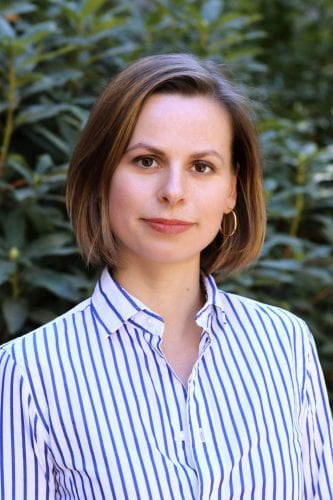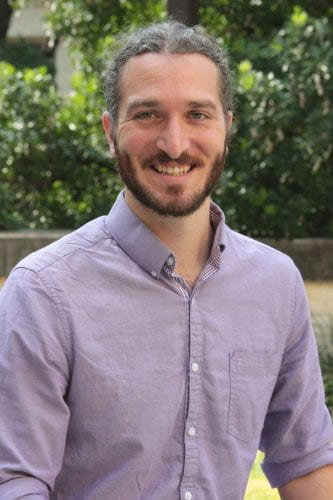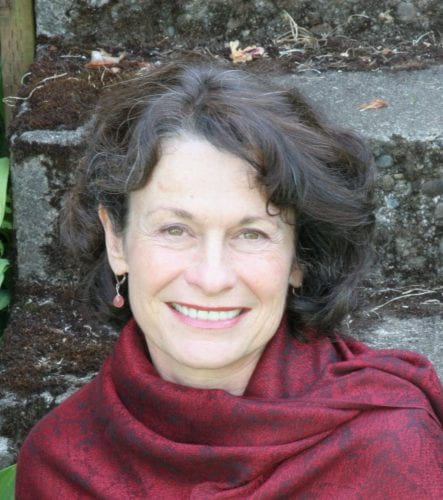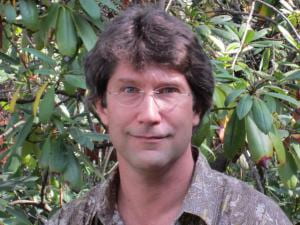This year, the Center for Environmental Futures in partnership with the Andrew W. Mellon Foundation offered five Summer Faculty Research Awards with stipends of $5,000 each to support faculty research and writing in the environmental humanities and creative works in the environmental arts. Read about this year’s winners along with their impactful research projects below:
 Nina Amstutz, “Avian Aesthetics Before and After Darwin“
Nina Amstutz, “Avian Aesthetics Before and After Darwin“
Nina Amstutz is Assistant Professor in the Department of the History of Art and Architecture. Her research focuses on intersections of art, nature, and science in the eighteenth and nineteenth centuries. Her first book, Caspar David Friedrich: Nature and the Self (Yale University Press, 2020), considers how methods and ideas in the life sciences informed the relationship between nature and the human subject in the German Romantic painter Caspar David Friedrich’s mature landscapes. Before coming to the UO, she was a Postdoctoral Research Associate in the Department of Paintings and Sculpture at the Yale Center for British Art. She completed her PhD in the History of Art at the University of Toronto.
In her new project, Avian Aesthetics before and after Darwin: A Posthumanist Perspective on the Bowerbird, Nina uses the Australian bowerbird’s practice of collecting and arranging aesthetic objects to attract a mate as a point of departure to question the humanist commitments of art history as a discipline. She looks to the evolutionary biologist Richard Prum’s recent efforts to resuscitate Charles Darwin’s notion of aesthetic evolution, critical theorist Elizabeth Grosz’s posthumanist perspective on art’s origins, the emerging discipline of multispecies ethnography, and indigenous epistemologies to situate human animals within the larger ecology of creative beings. Through the example of the bowerbird, she explores the possibility of a posthumanist and multispecies approach to writing about art.
 Marcel Brousseau, “Hyperborders: Cultural Techniques of the Trans-American Borderlands”
Marcel Brousseau, “Hyperborders: Cultural Techniques of the Trans-American Borderlands”
Marcel Brousseau is a visiting assistant professor of English and an affiliate of the Department of Indigenous, Race, and Ethnic Studies at the University of Oregon. From 2015 to 2017 he served as Carlos E. Castañeda Postdoctoral Fellow in the Center for Mexican American Studies at the University of Texas, Austin. He earned his PhD in comparative literature at the University of California, Santa Barbara. He has published articles about Gloria Anzaldúa and the poetics of the U.S.-Mexico border wall, about the filmic symbolism of bridges and tunnels on the border, and about Kiowa literary and digital mapping. He is at work on two books: Hyperborders: Cultural Techniques of the Trans-American Borderlands, under contract with University of Texas Press; and Climate Control/Culture Control, a manuscript in progress. He is also developing a critical GIS project creating “moralized road maps” of migration narratives.
Brousseau is using the CEF Mellon Summer Faculty Research Award to complete a chapter of his book Hyperborders, entitled “Lines and Shutters: Photography of the U.S.-Mexico Border Fence as a Political Ontology.” The chapter focuses on three artistic projects: Peter Goin’s 1987 photographic survey of the U.S.-Mexico border, Tracing the Line; the late-1990s, early-2000s photography made by author William T. Vollmann for his project Imperial; and the ongoing photographic and activist work of San Diego-Tijuana-based artist María Teresa Fernández. Representing distinct junctures in borderlands history, from contrasting subject positions, each artist questions differently how the camera confronts a border environment undergoing constant transformation. Using a methodology of site analysis, artist interview, and photographic close-reading, “Lines and Shutters” engages border photography as what Ariella Azoulay calls “the product of an encounter,” and considers how three photographers extend their distinct encounters toward critique of a future hyperborder.
Anne Kreps, “Apocalyptic Ecologies in New Christian Religions”
Anne Kreps is an assistant professor of religious studies. She holds a PhD in Near Eastern Studies from the University of Michigan. Her first book, The Crucified Book: Sacred Writing in the Age of Valentinus, examines alternative scriptural practices of ancient Christian communities. Her current work, “The Dead Sea Scrolls in the American Religious Landscape,” studies how ancient, alternative texts have found new life in religious communities in the United States. In addition to the Mellon Faculty Research/Center for Environmental Futures award, this project is supported by the American Council of Learned Societies.
Enoch is an ancient Jewish text that describes the heavenly ascent of the biblical patriarch Enoch and his violent visions of the end of the world. Kreps’s project “Apocalyptic Ecology in Christian New Religions” studies how the ancient text of 1 Enoch has been adopted in new Christian religions as a blueprint for a sacred mission to heal the planet. This summer project will contribute to chapters of a book “The Dead Sea Scrolls in the American Religious Landscape,” that examines more broadly the reception of the DSS in new religious communities.
 Theresa May, “WaterWays: Stories about Oregon Tribal Water Rights and Lifeways”
Theresa May, “WaterWays: Stories about Oregon Tribal Water Rights and Lifeways”
Theresa May is Associate Professor in Theatre Arts at the University of Oregon. Her research in theory and practice of ecodramaturgy, which examines intersections environmental humanities, indigenous studies, and embodied performance. As a practitioner of community-based theatre, she has collaborated with tribal communities of Oregon and Northern California to create theatre about the salmon crisis, resulting in the play “Salmon Is Everything.” She directs, with Marta Lu Clifford, the Native Play Reading Series at UO. Her publications include, Earth Matters on Stage: Ecology, Environment and American Theater (Routledge 2020); Salmon is Everything: community-based theatre from the Klamath Watershed (OSU Press, 2019); Readings in Performance and Ecology (Palgrave 2014). She is co-founder of the EMOS ecodrama playwright’s contest.
These funds support the completion of WaterWays, a community-based play focused on stories and concerns about waterways and water rights among Native communities of Oregon. The WaterWays project began two years ago in collaboration and consultation with Native partners to explore, celebrate and advocate for indigenous waterways in our region. Beginning in 2017, a two-part course taught by Theresa May and Elder-in-Residence Marta Lu Clifford, engaged undergraduates in researching the history and lifeways of Oregon Native tribes, and asked students question how these tribal histories related to current water issues facing regional tribes in light of ongoing settler colonialism and climate change. Elders gave guidance about the direction of the script, the questions it should ask. The course culminated in giving back a working draft as a reading in the Many Nations Longhouse. This grant supports the completion of the play in consultation by Native collaborators and a public reading in Fall 2020.
Peter Walker, “Community-Based Water Planning and the Culture of Collaboration in Harney County, Oregon”
 Peter Walker joined the University of Oregon in 1997 as the first faculty member jointly appointed in the Environmental Studies Program (with the Geography Department). His work examines environmental politics, emphasizing how historical, cultural, and social claims shape the use of natural resources. After graduating from college in development economics at UC Berkeley, Peter worked as a Peace Corps Volunteer in Sierra Leone promoting sustainable rice farming. Peter earned a master’s degree in environmental politics at Harvard University, and then joined the doctoral program in human geography at UC Berkeley. Peter completed his dissertation work on the politics of tree planting in Malawi. Since coming to UO, Peter focused much of his work on the rural West, including the publication of his 2018 book Sagebrush Collaboration, which examined how community-based natural resource decision-making defused a potentially explosive outcome from the 2016 armed takeover of the Malheur National Wildlife Refuge.
Peter Walker joined the University of Oregon in 1997 as the first faculty member jointly appointed in the Environmental Studies Program (with the Geography Department). His work examines environmental politics, emphasizing how historical, cultural, and social claims shape the use of natural resources. After graduating from college in development economics at UC Berkeley, Peter worked as a Peace Corps Volunteer in Sierra Leone promoting sustainable rice farming. Peter earned a master’s degree in environmental politics at Harvard University, and then joined the doctoral program in human geography at UC Berkeley. Peter completed his dissertation work on the politics of tree planting in Malawi. Since coming to UO, Peter focused much of his work on the rural West, including the publication of his 2018 book Sagebrush Collaboration, which examined how community-based natural resource decision-making defused a potentially explosive outcome from the 2016 armed takeover of the Malheur National Wildlife Refuge.
During Peter’s fieldwork for his 2018 book Sagebrush Collaboration in Harney County, Oregon, he became deeply impressed with the achievements of the local community in building collaborative institutions and what local people describe as a “culture of collaboration” that has enabled the community to work constructively toward solving potentially divisive resource issues. One local rancher stated that collaboration is what “inoculated” the community from the extremist anti-government politics brought to the community by outside militants who seized the Malheur National Wildlife Refuge in 2016. In that same year, the community launched a new collaborative effort to resolve another potentially explosive resource conflict: the apparent unsustainable extraction of groundwater, primarily for agricultural irrigation. Peter’s current fieldwork involves in-depth interviews and participant observation to understand how the community is putting its “culture of collaboration” to the test to constructively address the West’s most intractable resource challenge: water scarcity.
